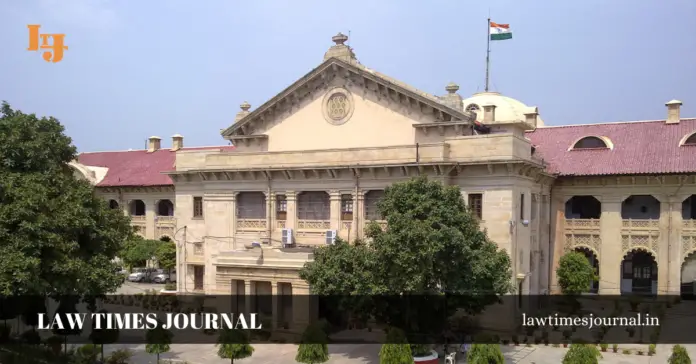
The Bench of Chief Justice Govind Mathur and Judge Saurabh Shyam Shamshery gave temporary cover to the accused on the previous date of the hearing.
The Additional Advocate General for the government of Uttar Pradesh has told the Allahabad High Court that no action will be taken against a petitioner who was previously given provisional arrest, protection after being filed under the Uttar Pradesh Prohibition of Unlawful Conversion of Religion Ordinance, 2020 (Nadeem v. State of Uttar Pradesh).
A writ appeal was filed by Nadeem, who was charged under Sections 3 and 5 of the Ordinance. On a past date of hearing, a bench of Chief Justice Govind Mathur and Justice Saurabh Shyam Shamshery conceded interval insurance to denounce.
At the point when the issue came ready for hearing on January 18, the Court was illuminated by the Additional Advocate General that no activity has been started against the accused under the new Ordinance. The request stated.
“At the edge, it is expressed by scholarly Additional Advocate General that the investigating organization isn’t continuing against the petitioner under Section 3 and 5 of Uttar Pradesh Prohibition of Unlawful Conversion of Religion Ordinance, 2020.”
In addition to Sections 3 and 5 of the Ordinance, the petitioner was convicted under Sections 504 of the Indian Penal Code (intentional insult to cause violation of the peace), 120B (criminal conspiracy), and 506 (punishment for criminal intimidation)
Having respect to the argument made by the AAG, the Court observed that the inquiry was to be carried out against the complainant exclusively based on offences under the Indian Penal Code. The same is for a Bench hearing to hear those matters as per the roster. Now the matter will be mentioned accordingly.
The Court noted, adding that the petitioner had already questioned the legality of the Ordinance.”To the knowledge of the state that a challenge is also given to the constitutionality of the Ordinance of 2020 in this petition for the writ that does not survive in light of the statement given by learned Additional Advocate General.”








